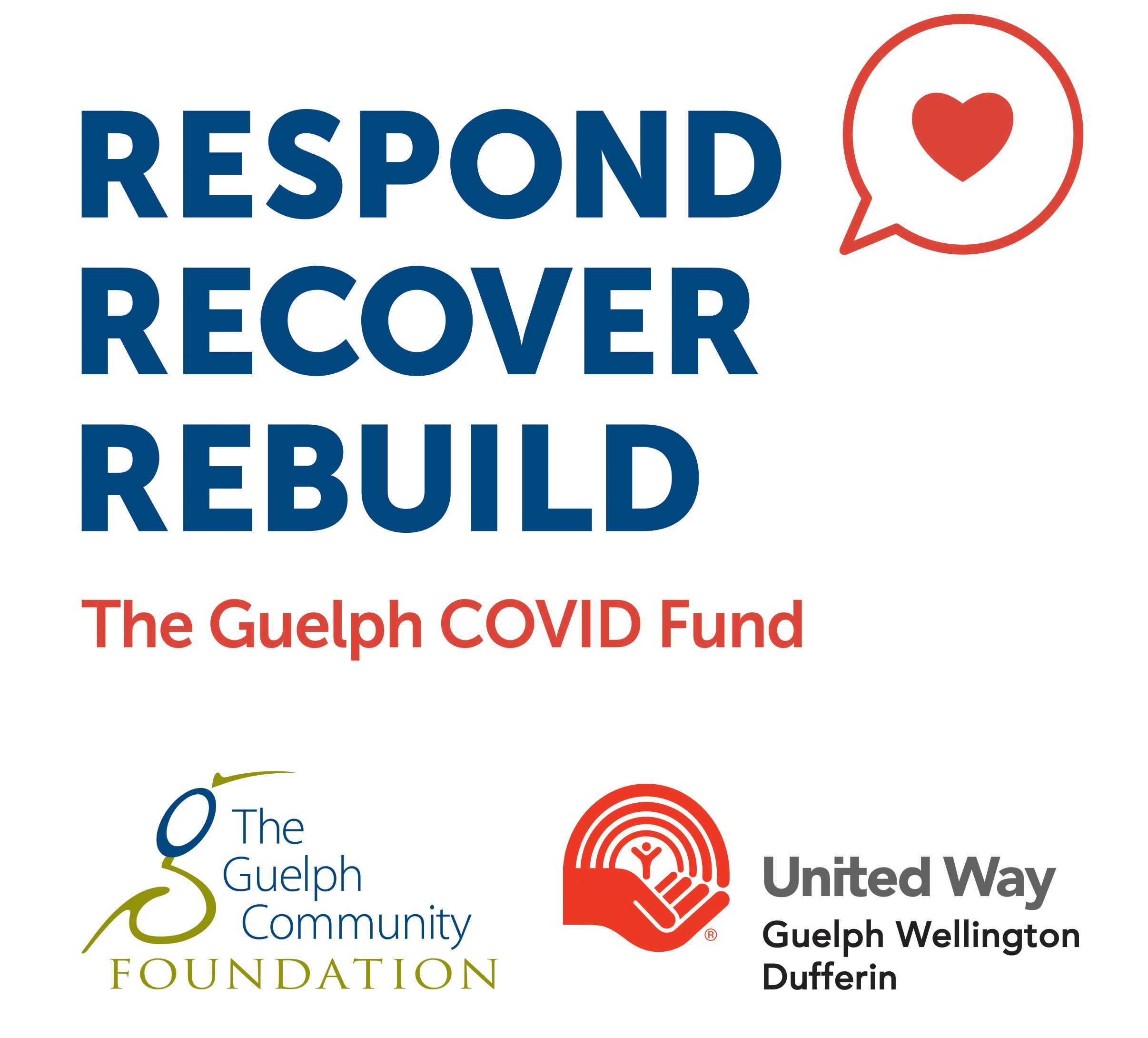GUELPH – Several Wellington County organizations are among a dozen that will benefit from over $50,000 to be awarded in the third round of COVID-19 Community Response Fund grants.
The grants, awarded by the Guelph Community Foundation and United Way Guelph Wellington Dufferin, were announced on May 29.
To date, the fund has issued 27 grants and $150,000 to local charities.
“The way our community has responded to the call for support has been beyond our expectations,” said Rick McCombie, executive director of United Way Guelph Wellington Dufferin.
“Because of this support, we’ve been able to help many of our critical community agencies during this difficult time, and support our most vulnerable populations.”
Chris Willard, executive director of the Guelph Community Foundation, said the foundation is proud of the work charities are doing during the pandemic.
“We are seeing innovative and responsive ideas to work around the difficulties physical distancing is causing, to ensure those who need support have access to it,” said Willard.
Organizations receiving third-round grants from the COVID-19 Community Response Fund are:
- After Breast Cancer (ABC) – $2,500 for care kits to support recent breast cancer patients;
- Wyndham House – $5,500 to support the Isolation Shelter for individuals experiencing homelessness;
- Church of the Apostles (St. James and St. Matthias) – $1,500 for the Kitchen Bees program;
- Michael House – $6,000 to support young mothers and their children;
- Royal City Mission – $5,000 for the COVID-19 food response program;
- The Salvation Army – $5,000 for the emergency food service program;
- East Wellington Community Services – $5,000 for technology support to assist seniors in isolation;
- Big Brothers Big Sisters Centre Wellington – $2,000 supporting a virtual camp experience for youth;
- Canadian Mental Health Association Waterloo Wellington – $5,000 for youth mental health interactive webinar hosted by the Integrated Youth Services Network;
- Canadian Mental Health Association Dufferin – $2,500 supporting basic needs for clients;
- Guelph-Wellington Women in Crisis – $2,000 for food insecurity support program;
- The Brain Injury Association of Waterloo Wellington – $5,000 for virtual support to those recovering from brain injuries;
- YMCA-YWCA of Guelph – $5000 for virtual programming; and
- Belwood Lodge and Camp – $500 for virtual camp programming.
Officials said they are thankful for all the individual donors that have contributed to the fund, as well as support from 100 Men Who Give a Damn Guelph, Alectra, The Co-operators, Cargill Canada, and Sleeman Breweries.
Individuals and corporations wanted to donate to the Guelph COVID-19 Community Response Fund can visit guelphcf.ca or unitedwayguelph.com/Covid-19 or email to either organization.
Previous beneficiary
The Portage Ontario Bunker House Project, a program of Portage Program for Drug Dependencies Inc., received a grant for $5,850 from the Fund in the previous round of grants.
Established in 1985, Portage Ontario, Canada’s first long term residential substance abuse residential rehabilitation centre in Elora, helps youth aged 14 to 18 overcome their substance dependency.
“When the province first declared an emergency, Portage had to suspend new admissions to safeguard the health and well-being of its current residents and stop the spread of the virus,” said Sourav Addy, Portage Ontario’s director of development.
“As the period(s) of social distancing continued to be extended, the number of requests for help from young people and their families piled up also.”
Addy explained, “After about three weeks, Portage launched the Bunker House Project – acquiring standalone bunker houses set up at a safe distance from the main community to accommodate new residents. New admissions are kept physically separate upon their arrival. Specific staff members are exclusively assigned to this process.
“Even though physically apart, the new admissions interact with the rest of the community through videoconferencing.
“At the end of the 14 days, they are integrated with the main resident community for the remainder of their residential treatment after examination by a nurse. This allowed Portage to continue to serve those in need even during this pandemic.”




